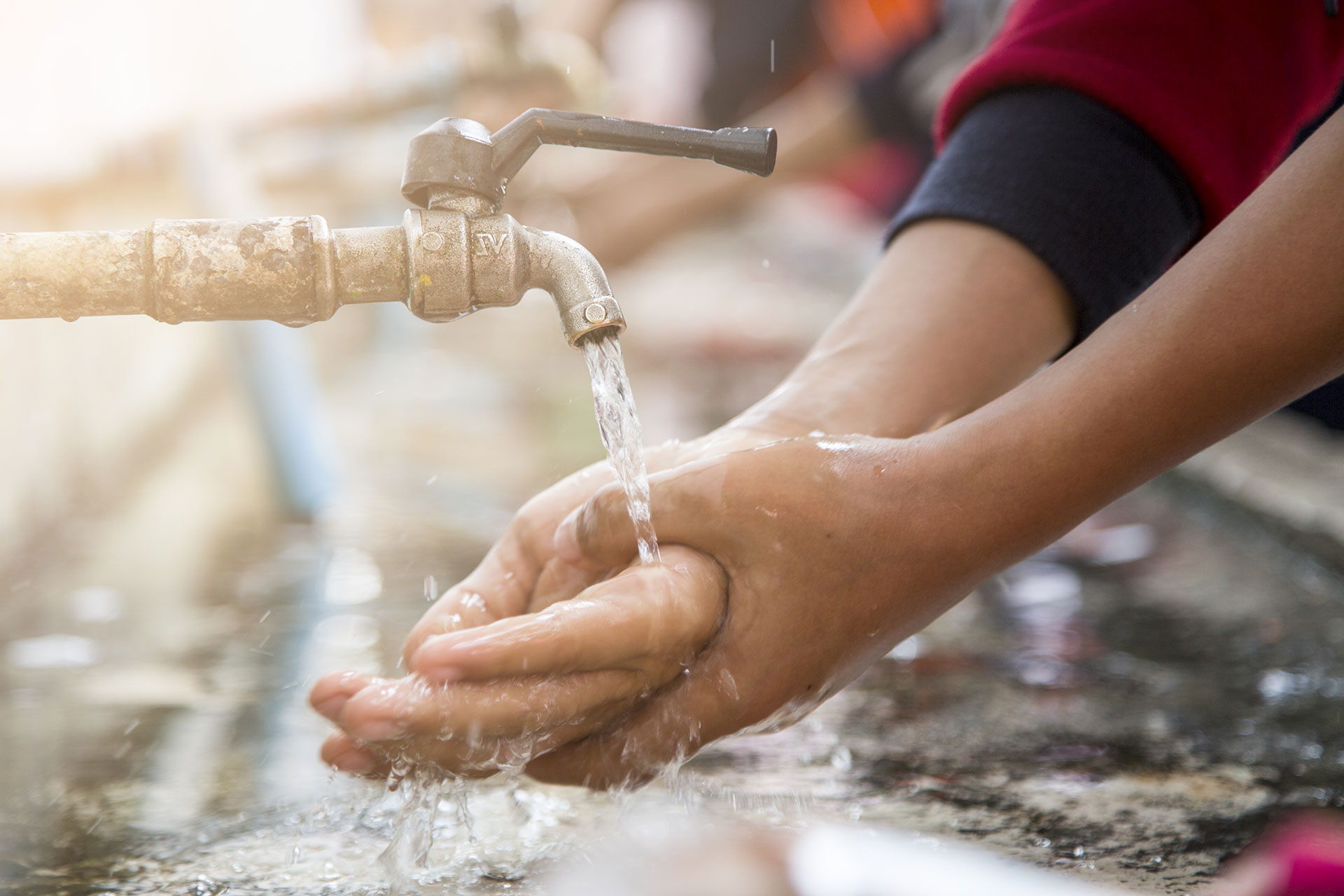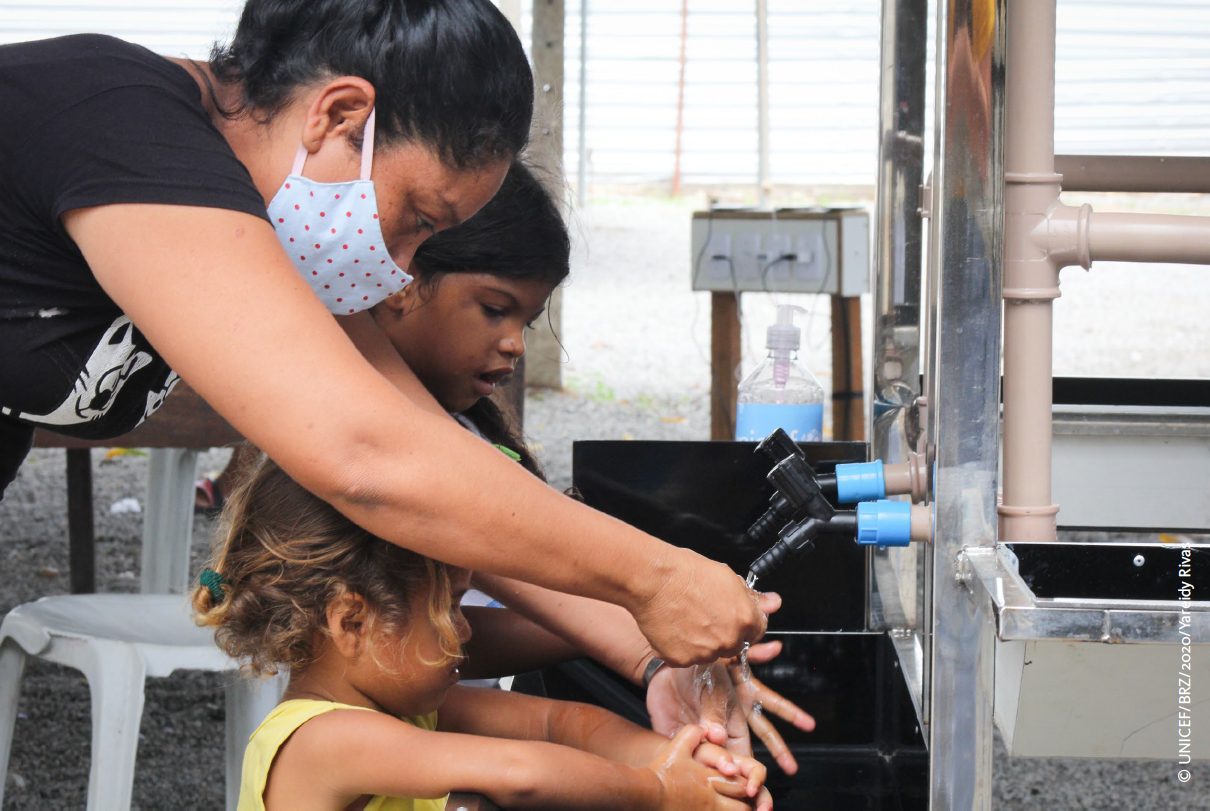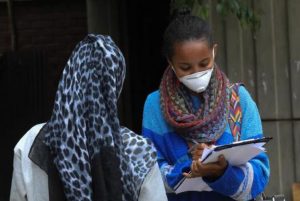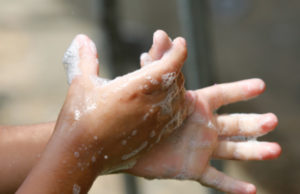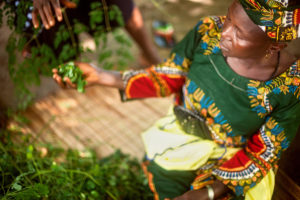heading
PROJECT: ACCOUNTABILITY FOR SUSTAINABILITYThe WASH response to Covid-19
How has the Covid-19 pandemic affected access to water, sanitation, and hygiene (WASH)? SIWI and UNICEF have monitored the international response since March 2020. The resulting reports show both encouraging trends and worrying developments.
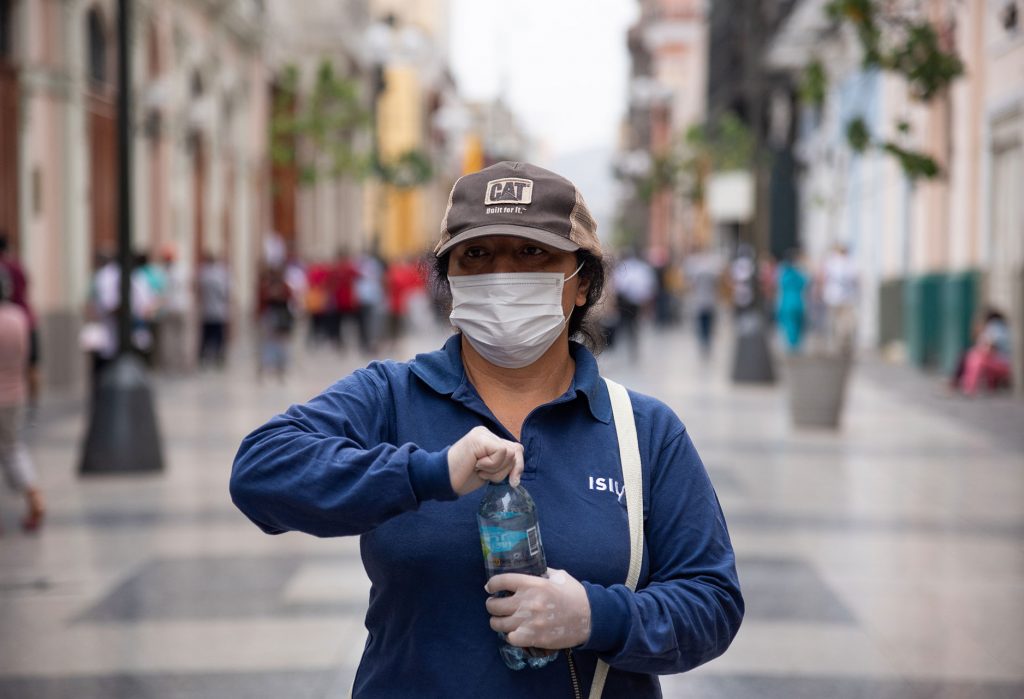
The health emergency caused by Covid-19 has affected all countries, to varying degrees. Handwashing with soap and clean water is one of the most efficient ways to prevent the infection, and many countries have implemented measures to mitigate the crisis through WASH.
Covid-19 has exposed and aggravated inequalities linked to income, gender, and disabilities that often determine access to essential services, including WASH. Furthermore, the pandemic revealed a chronic underinvestment in basic public health measures, and a longstanding failure to uphold the human right to water and sanitation.
During the pandemic, many governments have however tried to ramp up services or at least ensure that low-income households are not cut off from water and sanitation due to unpaid bills. But there is now a need for more long-term planning both to give more people access to WASH services and to strengthen water and sanitation utilities.
Initiative mapping
Since the beginning of the outbreak, SIWI together with UNICEF have mapped initiatives implemented by 84 countries in response to the Covid-19 pandemic. The initiatives were categorized in two groups: those aimed at preventing the spread of the disease, through improved hand hygiene and access to water and sanitation services for all, and initiatives proving technical and financial support to water utilities.
Common trends
The mapping showed differences between regions and countries, both in terms of ambition and scope, but there were some common trends, such as:
- Hygiene promotion and other measures to control the infection have been widely adopted, though there has sometimes not been enough soap, water, and handwashing facilities to keep up.
- Other measures included subsidies to people who cannot afford to pay their water bills and regulations forbidding utilities to forcibly disconnect users from water services.
- Many more people how become aware of the importance of handwashing from a health perspective.
- Water and sanitation utilities have made great strides when it comes to working remotely and improving supply chains. Many have established online payment systems, customer complaints mechanisms and similar services.
Potential gaps
The study also found potential gaps, such as:
- There is still not enough focus on public bathroom access and other forms of decentralized sanitation.
- Only a third of the countries in the study were actively considering the specific needs of women and girls in the WASH response.
- There was little mention of how the supply chains for water services and wastewater treatment services could be strengthened and diversified.
- There was limited evidence of technical and financial support to utilities, especially analyses of the economic viability of water utilities in the short to medium term.
Priorities
Strengthen infection prevention and control (IPC)
Infection prevention and control measures directed at households and institutions are instrumental to stopping the spread of the virus. All households should have a handwashing facility and easy, affordable access to basic hygiene products so that they can keep the home clean and disinfected. It is important to raise awareness of why people with symptoms should isolate themselves and why family members should avoid sharing towels, cups, and cutlery. In institutions, it is vital to secure uninterrupted access to water and sanitation services, with equipment for protection and prevention.
Access to water and sanitation
Many countries try to protect low-income households, for example by ensuring that customers are not cut off from water services for failure to pay their bills. There are encouraging attempts to ensure that even unconnected households get access to clean water. Still, the most vulnerable groups are often forgotten, including people living in institutions, people with disabilities, migrant workers, refugees, and the homeless. Rural areas must not be left behind. Everyone should be guaranteed a minimum amount of drinking water.
Expand water and sanitation services
There are many ways to improve access to safe water and sanitation. Some countries are distributing hygiene and water purification kits to households and institutions or finding other ways to facilitate access to soap and disinfectants. Additional water points are also created for vulnerable populations, through water tanks and water trucks. Other countries prioritize the expansion of handwashing facilities in health clinics, schools, and public places.
Support to service suppliers
Governments are encouraged to ensure that water and sanitation utilities can continue to function, despite the growing demands and the increased financial pressure caused by the current crisis. Water and sanitation utilities are often struggling to protect their workers when maintaining or expanding their services. Water utilities, small service providers and rural water community-based organizations need technical and financial assistance to continue operating in a safe and sustainable manner.
The ongoing Covid-19 pandemic has been one of the most significant shocks to global WASH systems in modern history, and policy makers around the world have implemented a wide range of responses. These policies have had varying degrees of success, and a range of challenges. The coming climate crisis dramatically increases the risk of similar shocks in the future.
The provision of water, sanitation, and hygiene s a key preventative measure in reducing the spread of Covid-19, and handwashing has been at the forefront of many countries’ response. However, this response to Covid-19 has posed, and continues to pose, detrimental effects on services delivery and sustainability.
SIWI with the support of UNICEF developed a study that analyses, assesses, and discusses the socio-economic effects of the pandemic in relation to its impact on WASH systems and services. The assessment is structured around two different stages of the crisis:
- the immediate effects in the early stages of the pandemic, and
- the indirect secondary effects caused as the crisis evolves into new phases.
Over one year into the pandemic, many lessons have been learned on how to manage and deliver services for all in a challenging and complex context.
The sector is learning how to adapt and put in place a combination of time-limited and long-term measures that are capable of supporting more and better access to clean water and sanitation.
Despite some progress, much remains to be done. Often, response and recovery measures are not benefiting the vulnerable groups and are deepening the gap between served and underserved populations. In addition, with reduced access to WASH materials and equipment, ruptures in global and local supply chains, many service providers facing serious financial and cash-flow difficulties, and a shrinking fiscal space, WASH services in specific contexts are at grave risk of collapsing.
This will be further aggravated by weak governance, policies, and strategies; inadequate regulatory frameworks; and insufficient coordination mechanisms, which already plague the WASH sector.
Therefore, technical and financial support to service providers and regulators, together with capacity development, require urgent strengthening at all levels. In the short-term, the goal of WASH stakeholders is to ensure availability and continuity of services for all to alleviate the severity of the Covid-19 impacts and prioritize the most vulnerable populations. Looking forward, the aim is to enhance the WASH sector’s resilience to future shocks.
Recommendations
For the future, these policies or interventions can be recommended:
- Ensure that utilities and services are resilient to the growing threats related to climate change impacts.
- Improve and strengthen service delivery in urban slums, public spaces, health care facilities and schools as societies are opening up again. There is generally a lack of support to the most vulnerable households, rural areas, and informal settlements.
- Similarly, both urban and rural water and sanitation operators suffer from a lack of support that could make them unable to continue delivering services. Unless technical and financial support is scaled up, they could face serious problems, even in the short to medium term. Both types of support are essential to ensure the financial viability of utilities so that they can continue to provide critical services.
- Sanitation has rarely been included in Covid-19 response plans, putting vulnerable groups at high risk of infection. There are important lessons to learn for the future.
- Hygiene promotion as well as infection prevention and control need to continue, with a focus on public spaces. To be effective they must be matched with commitments to provide schools and health care facilities with adequate access to soap and water.
Strengthening WASH for a safe return to school
How can schools open up safely after having been closed due to Covid-19? SIWI is collaborating with UNICEF’s regional offices in Latin America & the Caribbean and the Middle East & North Africa to ensure a safe return to school.
Learn more about WASH in Schools